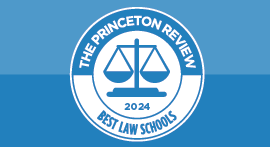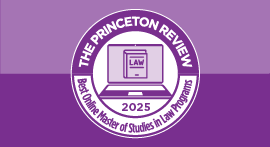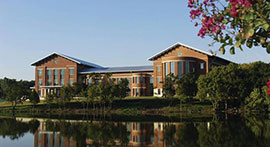Overview
Test Scores
(enrolled students)
Deadlines
Application Process
Other Admission Factors
LSAT Score
Undergraduate GPA
Essay / Personal Statement
Extracurricular Activities
Work Experience
Selectivity Rating
Faculty Information
Students Say
While the JD curriculum is “rigorous and demanding,” it would be very difficult to slip through the cracks at Texas Tech. When they start the program, students are grouped into sections that serve as a support network during 1L, and “all of the first-year classes have upper-level students as tutors to supplement your classroom hours.” The teaching staff is also committed to student success, and maintains consistent office hours so that students “can stop by and talk to professors at any time.” A totally user-friendly experience, “the resources provided by the school are top-notch and they’ve designed everything to revolve around the student and their schedule.” To top it all off, the construction of the Lanier Professional Development Center building, added 34,000 square feet to the law school building. The school is already equipped with a first-rate library, and “the library staff is amazing and always available.”
When it’s time to start looking for a job or clerkship, Texas Tech maintains “a great reputation in the Texas legal markets as producing hard-working, effective lawyers.” Students choose Tech precisely for this reputation and are proud of the results. One new initiative, the Regional Externship Program, places students in other metro areas in Texas where they work 30-35 hours per week and earn a full semester of credit. A third-year student asserts, “I’ve been told on several occasions that a firm would rather pick up a Tech Law graduate who knows what to do when he steps foot in the office than some Ivy League grad who knows more about theory and less about how to get the job done.” While career placement is highly successful in Texas, many students feel that the school could improve its national reputation and help “out-of-state students find jobs in their home states.” In general, students would like their top school to take a more leading role in the national legal community, urging the administration to “spend more money to attract more nationally known . . . guest speakers and employers.” One step in this direction is the Academy for Leadership in the Legal Profession’s lecture series, which has brought in national speakers such as the GC of Kia Motors.
Career overview
Career Services
Graduates Employed by Area
Graduates Employed by Region
Prominent Alumni
Dates
Expenses per Academic Year
Student Body Profile
Demographics
Campus Life
Students Say
If you’ve never been to West Texas, a student dryly describes it for us as “a vast, treeless, invariably flat expanse of dirt. They even have tumbleweeds here—like out of a John Wayne movie or Looney Tunes.” Although it sounds a bit inhospitable, students say the advantage to Lubbock’s small city environment and arid landscape is that there are fewer distractions, which makes it easier to focus on your homework. More importantly, “Lubbock is a great environment for law students to partner with local lawyers and learn the ropes.” “The Lubbock legal community is extremely strong and polite, and the relationship is emphasized over the case,” one student says. “Lubbock is not the most exciting town on the universe” in terms of nightlife; however, the law school’s friendly students “have managed to carve out a pretty decent social life. The bars here are okay, but the law students will sponsor various events and they are typically very fun.”
More Information
Admissions Office Contact
Associate Director of Admissions
Lubbock, TX 79409



